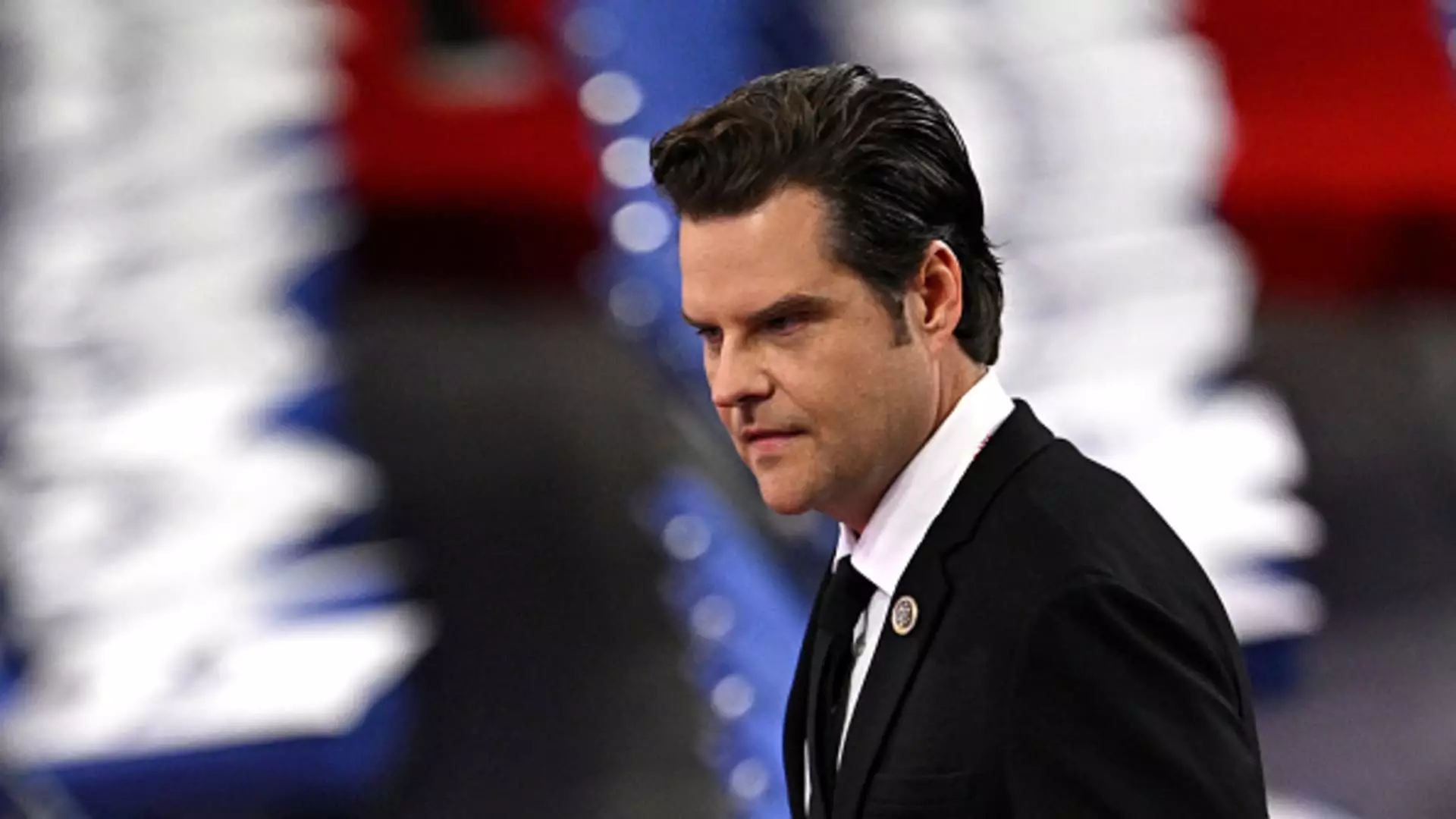The political landscape is often rife with controversy, but few cases have captivated the public’s attention as keenly as the allegations surrounding Matt Gaetz. As a U.S. representative whose political stance aligns with far-right beliefs, Gaetz has recently found himself embroiled in serious allegations of sexual misconduct, raising questions about his suitability for public office and his potential appointment as U.S. attorney general under President Donald Trump. The implications of these allegations extend beyond individual accountability; they cast a long shadow over the integrity of the political system itself.
Reports emerged that a woman testified to the House Ethics Committee claiming to have witnessed Gaetz engage in sexual activity with a minor during a house party in Orlando back in 2017. The attorney representing this woman, Joel Leppard, has asserted that the testimony is crucial for the American public to understand the character of someone who could become a top enforcement figure in the country. As Gaetz prepared to be nominated for attorney general, the gravity of this accusation cannot be overstated. It frames a larger narrative about accountability and transparency in government.
In light of the allegations, Gaetz has categorically denied any wrongdoing, positioning himself as a victim of a coordinated smear campaign and an extortion plot. His legal representatives have questioned the credibility of the claims, pointing out that the Department of Justice, headed by Merrick Garland, did not impose charges against Gaetz, suggesting that a comprehensive investigation cleared him of any wrongdoing. This narrative of being targeted complicates public perception, as the facts appear to be caught in a web of politically charged rhetoric.
The resignation of Gaetz from Congress following Trump’s announcement regarding his nomination has led some Republican senators to voice their concerns. They are demanding insight into the ongoing investigation by the House Ethics Committee before considering any confirmation votes. This situation is unprecedented; the committee’s decisions bear significant weight not only for Gaetz’s political future but for the broader Republican Party.
Amidst these developments, House Speaker Mike Johnson has indicated intentions to keep the Ethics Committee’s findings under wraps, arguing that releasing such information would be an unsuitable breach of protocol, especially considering Gaetz’s exit from Congress. The issue at hand is not merely about individual transgressions, but about how political entities handle misconduct allegations and the accountability of elected officials.
The future of the Ethics Committee’s investigation remains ambiguous as it was deferred at the Justice Department’s request. Following the withdrawal of that deferral, the committee’s reauthorization appears to unravel the traditional processes of accountability. If Gaetz’s allegations are substantiated, they could reshape the political landscape and pose serious ethical questions for the Republican Party.
Above all, this controversy raises a fundamental question: What rights does the public have to access information concerning allegations against those in power? As voters, taxpayers, and stakeholders in the democratic system, the American public has an inherent interest in the ethical conduct of their representatives. The insistence from some political figures on withholding the Ethics Committee report underlines a tension between transparency and political convenience.
As the saga continues to unfold, the implications of these allegations cast an essential spotlight on issues of ethics, accountability, and political integrity. The final decision regarding Gaetz’s potential appointment as attorney general and the Ethics Committee’s report will undoubtedly influence public perception and the political climate in the United States. Whether the truth emerges in a manner that upholds accountability remains to be seen. In the complex interplay of politics and justice, the stakes are high—not just for Gaetz, but for the very principles that underpin American democracy.


Leave a Reply